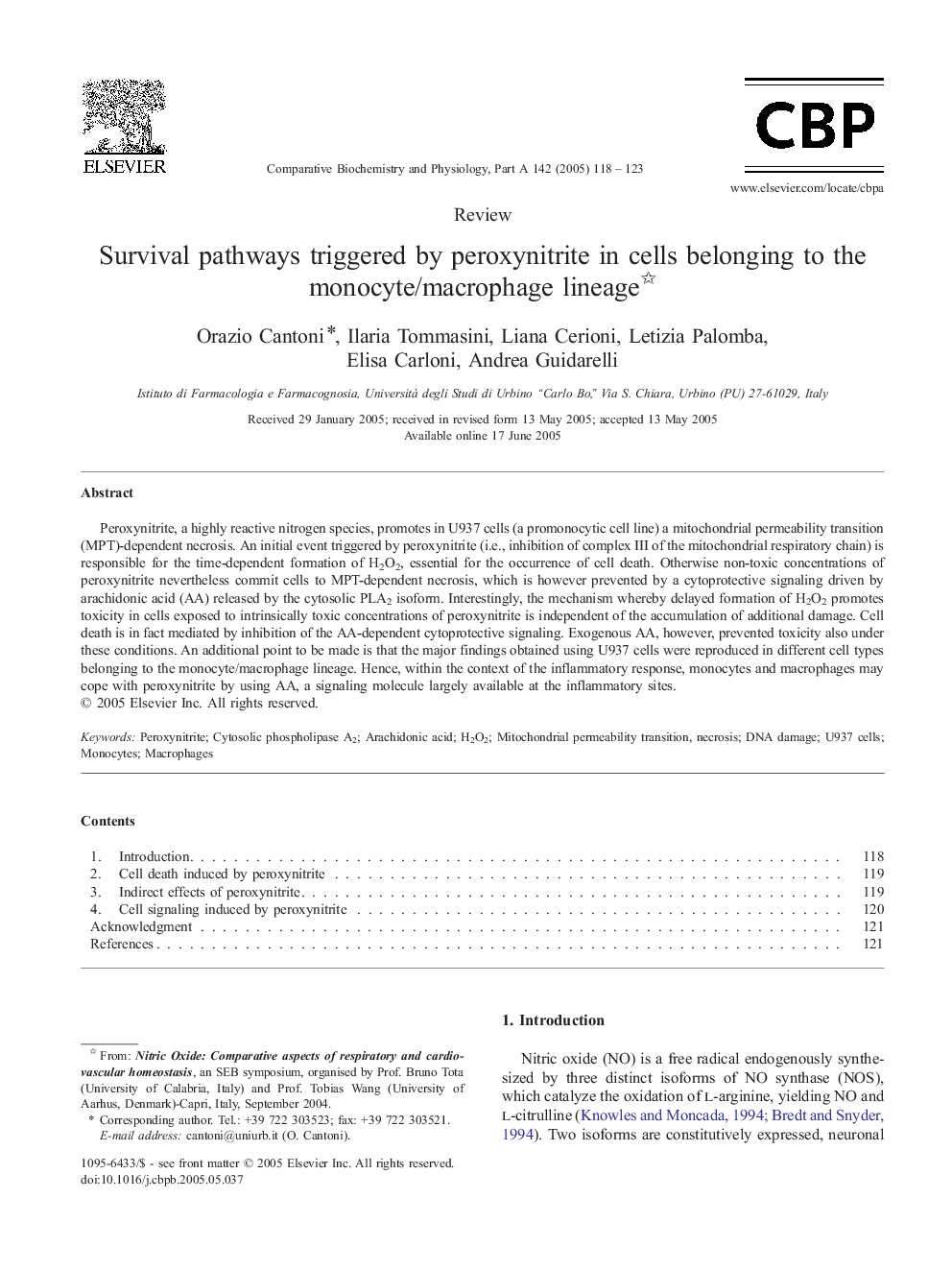| Article ID | Journal | Published Year | Pages | File Type |
|---|---|---|---|---|
| 10819129 | Comparative Biochemistry and Physiology Part A: Molecular & Integrative Physiology | 2005 | 6 Pages |
Abstract
Peroxynitrite, a highly reactive nitrogen species, promotes in U937 cells (a promonocytic cell line) a mitochondrial permeability transition (MPT)-dependent necrosis. An initial event triggered by peroxynitrite (i.e., inhibition of complex III of the mitochondrial respiratory chain) is responsible for the time-dependent formation of H2O2, essential for the occurrence of cell death. Otherwise non-toxic concentrations of peroxynitrite nevertheless commit cells to MPT-dependent necrosis, which is however prevented by a cytoprotective signaling driven by arachidonic acid (AA) released by the cytosolic PLA2 isoform. Interestingly, the mechanism whereby delayed formation of H2O2 promotes toxicity in cells exposed to intrinsically toxic concentrations of peroxynitrite is independent of the accumulation of additional damage. Cell death is in fact mediated by inhibition of the AA-dependent cytoprotective signaling. Exogenous AA, however, prevented toxicity also under these conditions. An additional point to be made is that the major findings obtained using U937 cells were reproduced in different cell types belonging to the monocyte/macrophage lineage. Hence, within the context of the inflammatory response, monocytes and macrophages may cope with peroxynitrite by using AA, a signaling molecule largely available at the inflammatory sites.
Keywords
Related Topics
Life Sciences
Biochemistry, Genetics and Molecular Biology
Biochemistry
Authors
Orazio Cantoni, Ilaria Tommasini, Liana Cerioni, Letizia Palomba, Elisa Carloni, Andrea Guidarelli,
